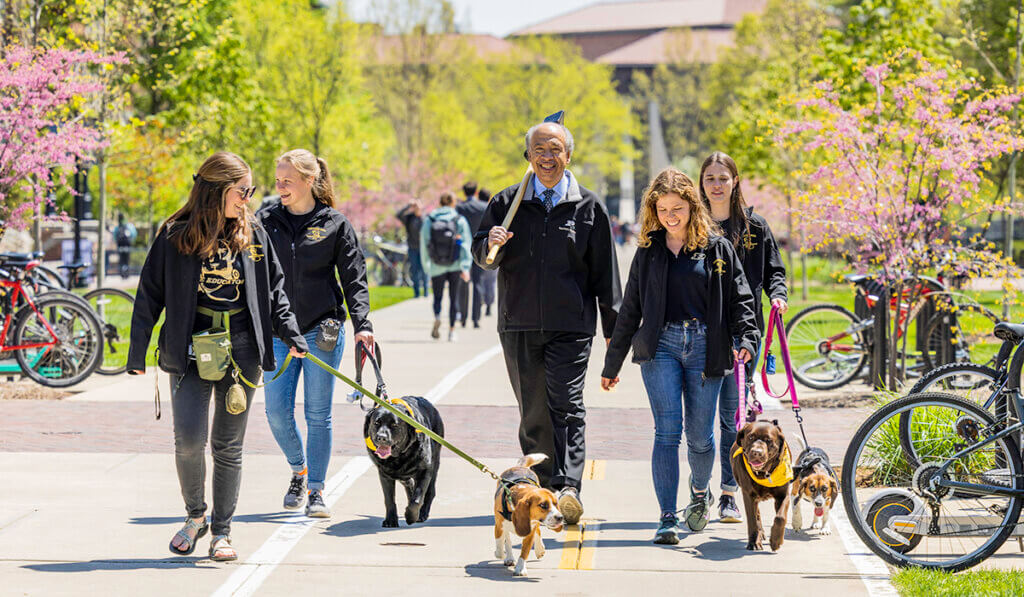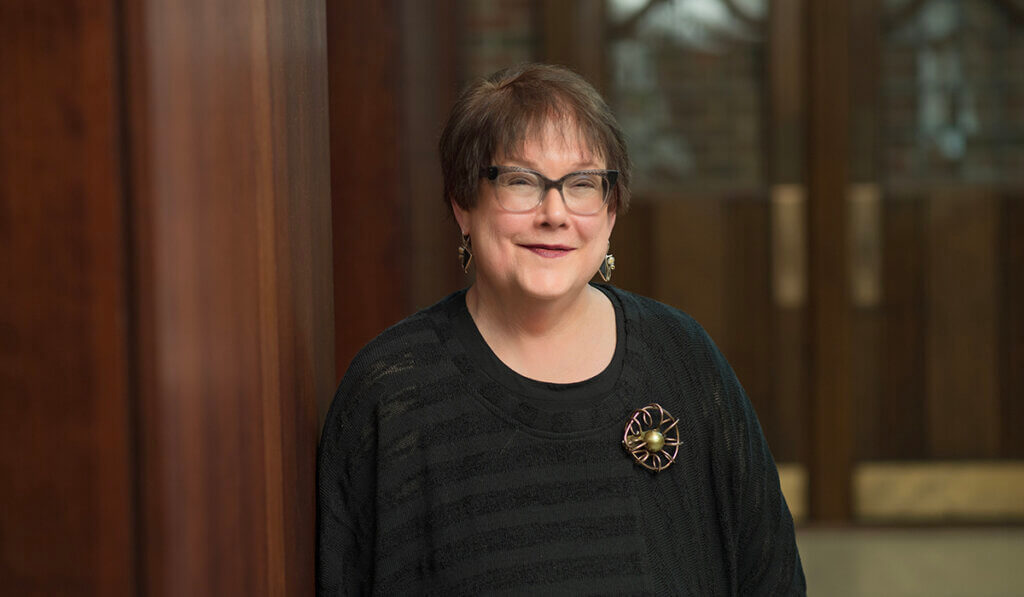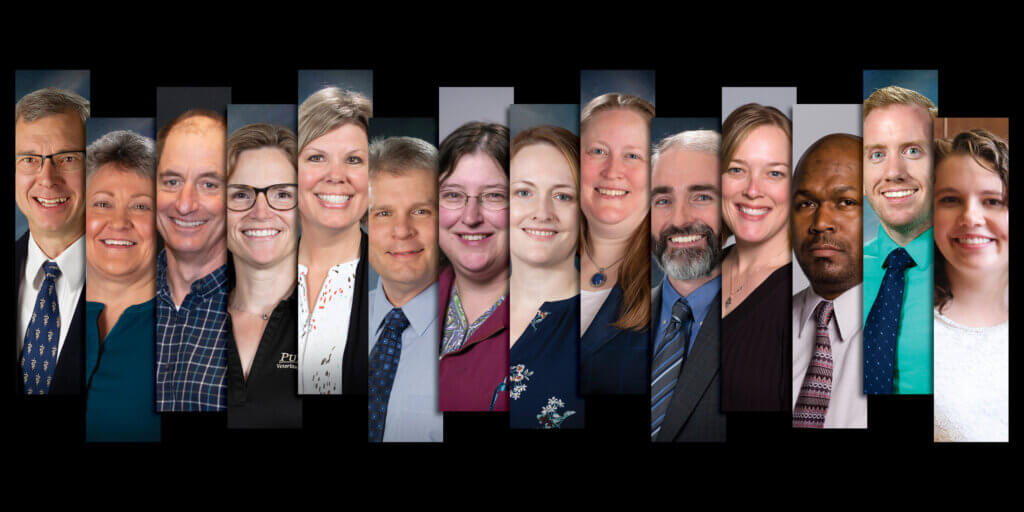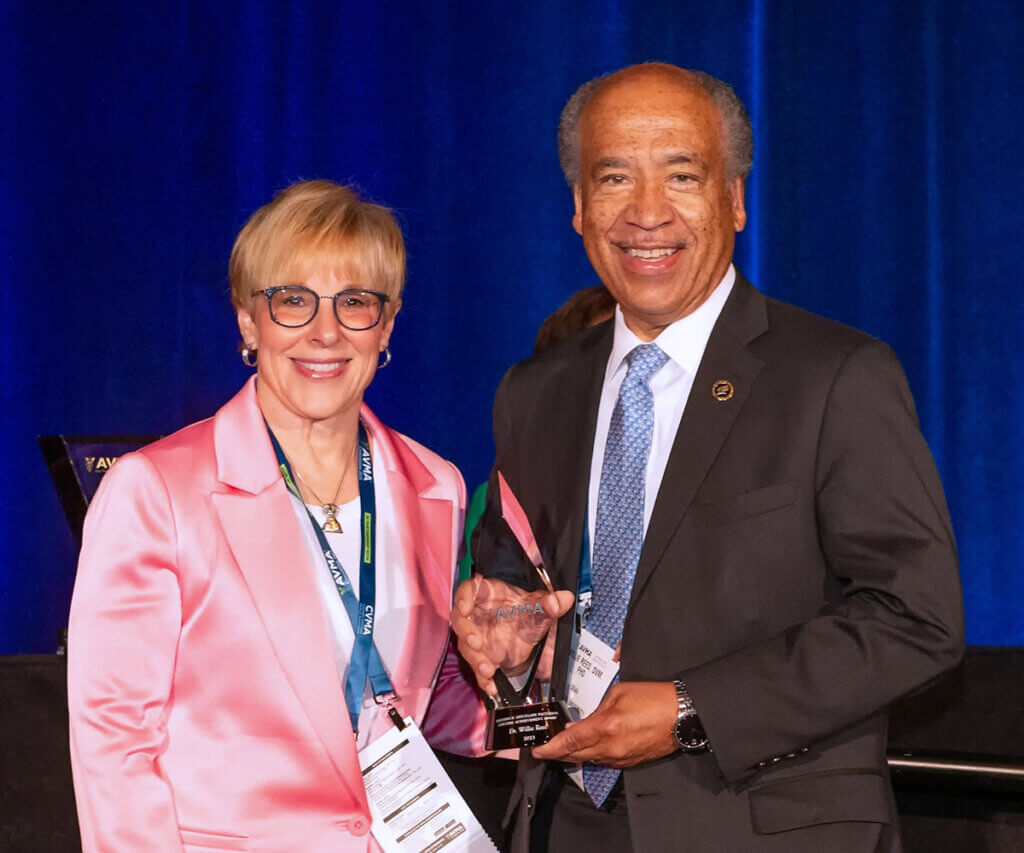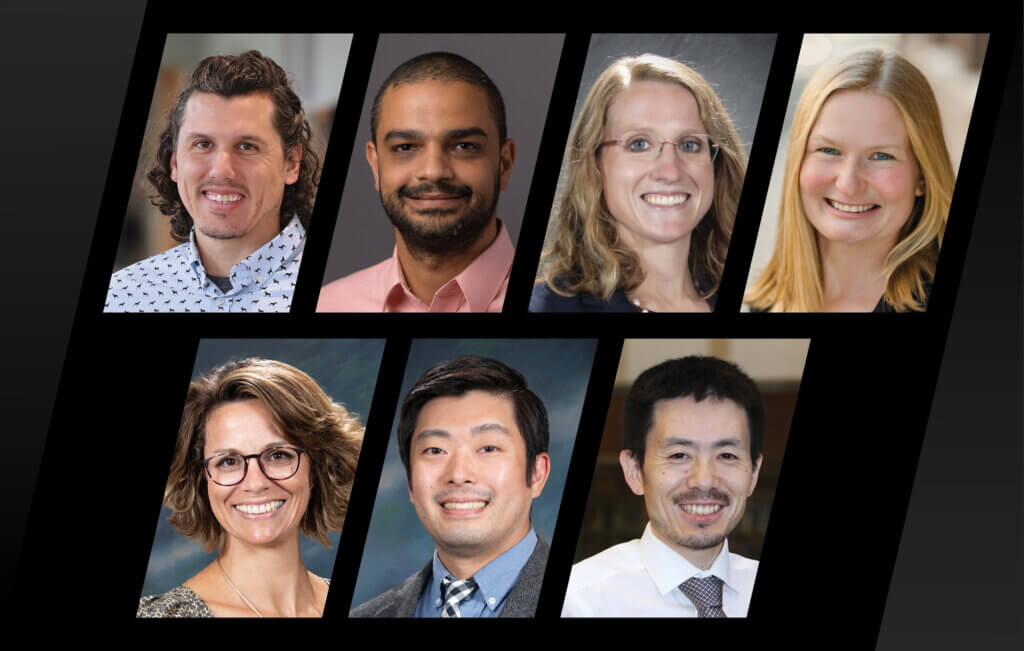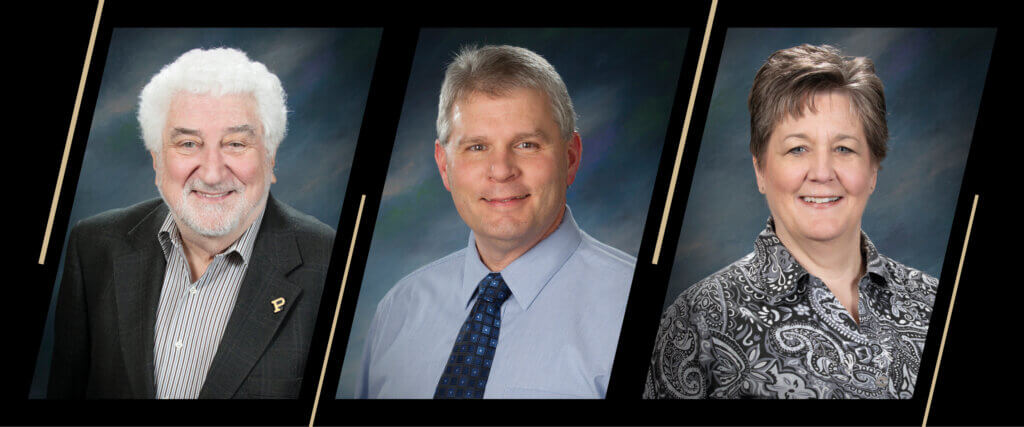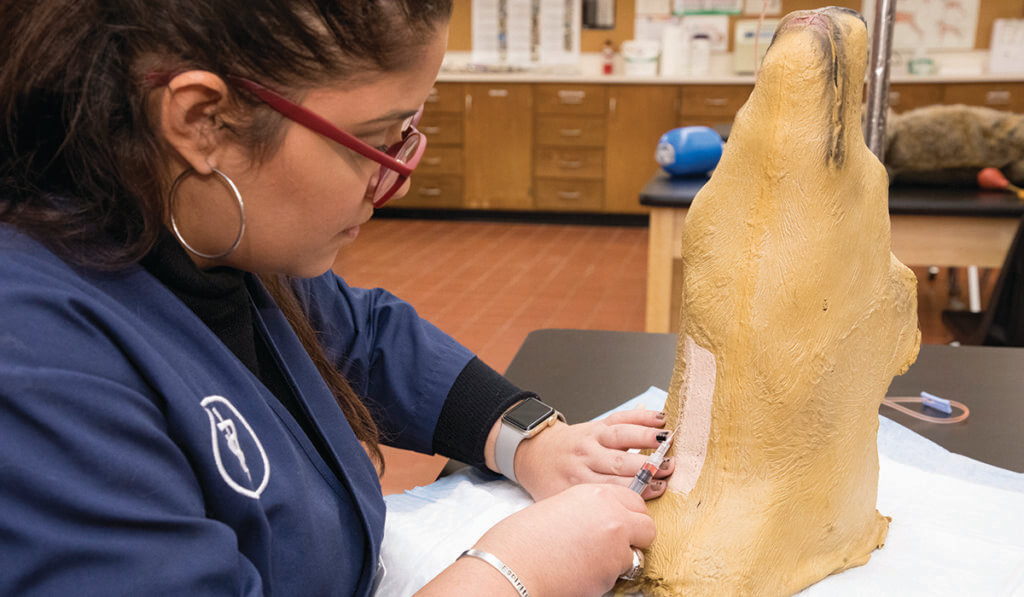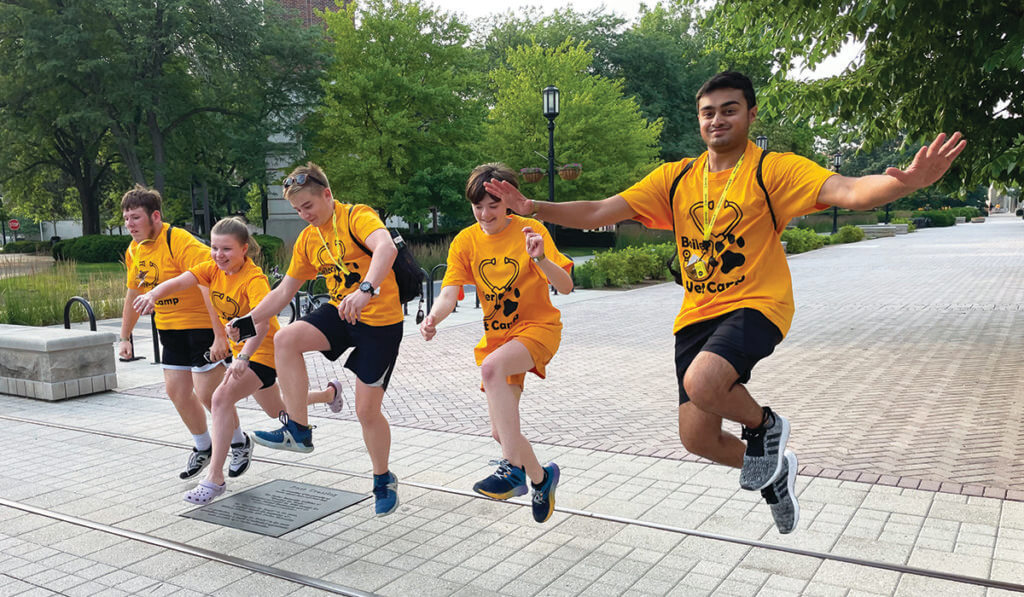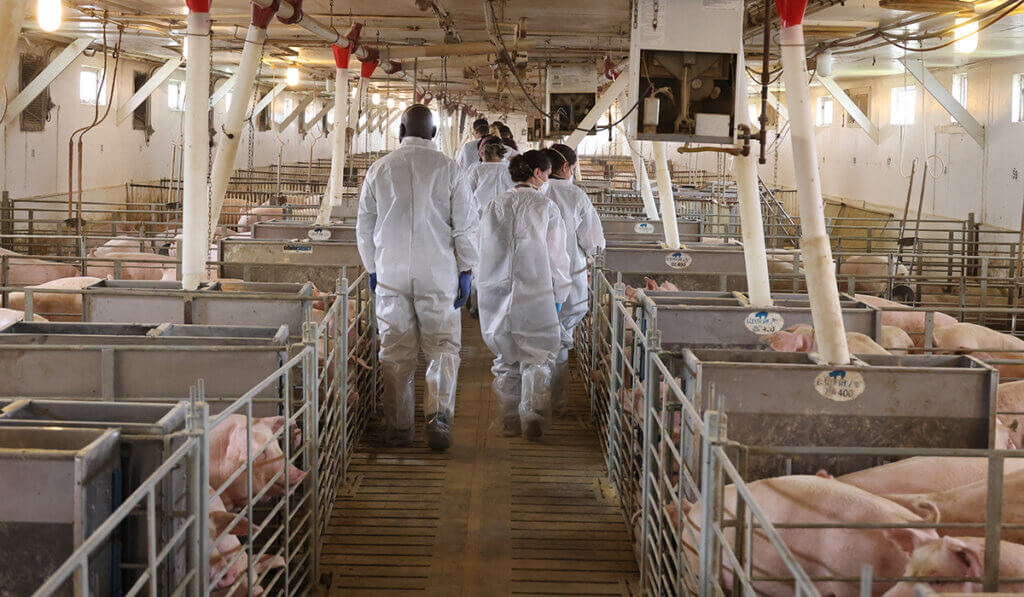Month: December 2023
Record Giving Advances College’s Mission and Vision
December 15, 2023
Fiscal year 2022-23 was another incredible showing of love and loyalty from alums, clients, and friends of the College of Veterinary Medicine! The third consecutive year of philanthropic support totaling over $20 million proves our mission to advance global animal and human health and well-being through excellence in learning, discovery, and engagement is a meaningful cause to join. We are grateful for our part to carry forth the work of your investment to move the world forward.
In Support of Inclusive Excellence in Veterinary Medicine
December 15, 2023
In another life, Joanne Troutner might have been a veterinarian. But in the early 1970s — when the national average of male enrollment in veterinary schools was 89% — a career in veterinary medicine didn’t seem accessible to her. Now, women in the profession outnumber men, and yet diversity remains an issue, as 90% of today’s veterinarians identify as white.
In 2008, the Purdue University College of Veterinary Medicine established the Office of Diversity, Equity, and Inclusion with the purpose of intentionally creating a culture of excellence that supports a diverse and inclusive environment in the college. The creation of the new office reflected the vision of Dr. Willie Reed, who had just been appointed as the college’s new dean a year earlier.
“The College of Veterinary Medicine has been engaged in this work for 15 years,” Joanne said. “The programming is phenomenal and it’s having a real impact. It’s necessary work and it needs to continue, which is why I’m proud to support the college’s DEI efforts with a designated gift, given in honor of Dean Reed.”
Honoring Distinguished Alumni and Instructors
December 15, 2023
Outstanding faculty and alumni were honored by the Purdue University College of Veterinary Medicine during multiple ceremonies that featured annual awards and recognition. Faculty awards recognized teaching, research, service, and scholarship of engagement, while alumni were honored for their outstanding careers in the veterinary medical profession.
Dean Willie Reed Receives Inaugural AVMA Award for Lifetime Contributions to Diversity, Equity, and Inclusion
December 15, 2023
When the American Veterinary Medical Association (AVMA) established the Frederick Douglass Patterson Lifetime Achievement Award in 2023 to recognize distinguished leadership in promoting diversity, equity, and inclusion (DEI) in the veterinary profession, one nominee stood out as an especially fitting choice to be the inaugural recipient. That person is Dr. Willie Reed, dean of the Purdue University College of Veterinary Medicine.
Welcome New Faculty
December 15, 2023
The following faculty members joined the College of Veterinary Medicine’s academic departments in the past year. Please join us in welcoming our newest educators, researchers, and clinicians.
Celebrating Retiring Educators
December 15, 2023
The Purdue University College of Veterinary Medicine celebrates the accomplishments and careers of PVM educators who have retired in the past year.
Cultivating Curricular Excellence
December 15, 2023
When Dr. Willie Reed stepped into the Purdue Veterinary Medicine deanship in 2007, he knew the faculty had worked hard on designing and making improvements to the curriculum over the college’s nearly 50-year history to ensure that students were getting the best education possible. Yet, he also had the conviction that more could and needed to be done to better position current veterinary graduates for success.
Dean’s Global Vision Leads to Expanded Global Engagement for Students
December 15, 2023
Of the numerous notable advancements Dean Willie Reed has pioneered for Purdue Veterinary Medicine during his tenure, perhaps the most far-reaching involves global engagement. The establishment of the college’s Global Engagement Office with a full-time director in 2015 was followed by a consequent, soaring increase in global engagement involving both DVM and veterinary nursing students.
Boiler Vet Camp Earns American Camp Association Accreditation
December 15, 2023
After 15 years of Purdue University’s Boiler Vet Camp, the summer program has earned its bragging rights. A highly competitive camp registration process yields 100 campers from more than 800 teenage applicants. It was the first vet camp in the country to provide campers a weeklong in-residence experience. It cultivates future veterinarians — many of its participants go on to earn a DVM, several at Purdue. Adding to the list of accolades, it’s now the first camp at the university to be accredited by the American Camp Association.
$3M Grant Renews Funding for Purdue Program Expanding Access to Veterinary Profession
December 15, 2023
The Purdue University College of Veterinary Medicine is receiving vital new federal support for an innovative program addressing a national shortage of veterinarians in public health and rural/food animal practice in Indiana and beyond, and a significant lack of underrepresented individuals entering the veterinary profession. The Health Resources and Services Administration (HRSA), an agency of the U.S. Department of Health and Human Services, has renewed a five-year, $3.2 million grant to further the success and impact of Vet Up!® The National Health Careers Opportunity Program (HCOP) Academy for Veterinary Medicine.

